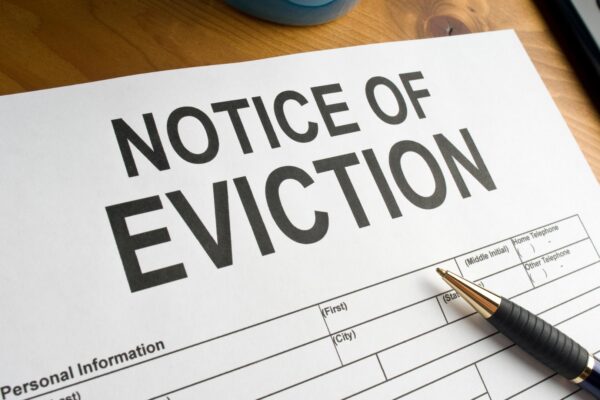Some significant events are coming down the tracks for landlords in 2020. We’ve pulled together the key dates to remember and the important new rules to know about.
Goodbye, Section 21 Evictions
The Conservative manifesto pledged to end ‘no fault’ evictions, following on from a Government promise last April to scrap Section 21 evictions. This makes it very likely that the tenure reforms will be passed this year, the first year of the new parliament. Full implementation may be years away, however.
The exact details are yet to emerge. A consultation on the plans closed in October 2019, and is currently being “analysed” by MHCLG. What looks certain is that Section 21 of the Housing Act (1988) will be repealed, with Section 8 being strengthened so that landlords (and lenders) can still repossess the property if the right grounds exist.
Goodbye, Inefficient Properties
In April this year, landlords will no longer be permitted to let properties with poor energy efficiency ratings. Those who do could face fines of up to £5,000. The rules apply to properties in England and Wales. Similar rules already exist in Scotland.
The new minimum energy efficiency standard (MEES) will be E, meaning landlords with properties rated F or G could be fined. These rules have applied to new tenancies since April 2018, but will be extended to all existing tenancies from April this year.
If you have a property rated F or G, then you don’t have long left to make improvements, get a new certificate and send it to your tenants. Which? claims that it takes an average of £1,200 to upgrade older properties to an E rating.
Goodbye, Right to Rent Checks
Right to rent checks were ruled “discriminatory” and a breach of human rights law by the High Court in March last year. The Government launched an evaluation of the scheme in September.
Landlords in England must still perform the check before letting to tenants, but we expect this to change in 2020. Labour and the Liberal Democrats pledged to end the checks in their election manifestos and Boris Johnson’s own government launched the evaluation last year, strongly suggesting the tide has turned against this centrepiece of the ‘hostile environment’ policy.
The ‘hostile environment’ was associated with Theresa May, starting during her long tenure at the Home Office, continuing into her premiership and the Windrush scandal. With May no longer leading the country, it is likely that 2020 will be the year that right to rent is crossed off landlords’ to do lists for good.
Goodbye, Mortgage Interest Tax Relief
The long-running phaseout of tax relief for landlords’ mortgage interest payments will be completed in April, the end of the 2019-20 financial year.
From April 2020, no mortgage interest costs will be deductible. Instead you will receive a 20% tax reduction on whichever is the lowest of the following:
- Your finance costs
- Your property profits (after taking into account previous year losses)
- Your total income minus savings income, dividends and personal allowance
If your finance costs are not the lowest, you can carry forward the difference to future tax years.
Goodbye, Your Local Letting Agent Branch
Last year, PwC research found high street estate agent branches to be closing at a rate of knots. The first half of 2019 saw a net closure of 100 branches on high streets across the UK: the worst performance of all sectors bar fashion retail and restaurants.
We expect the trend of high street branch closures to continue well into 2020. The Tenant Fees Act came into force halfway through 2019, banning the ripoff fees that many agents required to stay in business. Agents also have to comply with a number of pieces of legislation introduced in recent years, such as Client Money Protection rules.
This will only exacerbate the problem for high street agents. Trying to pass the costs onto landlords will prompt landlords to look elsewhere for much better deals than can be found on the high street.




Your review of the 2020 rules for landlords is very misleading in respect of the mortgage interest tax relief.
The article states that " no mortgage interest costs will be deductible, but instead will be taxable at the new basic rate of 20%".
This is not strictly correct as HMRC’s example clearly shows that the mortgage interest is still allocated tax relief at the basic rate of 20%.
The purpose of this amended format for calculating mortgage interest tax relief, is to prevent higher rate tax payers from utilising these costs as an expense in order to reduce their tax liability from their higher tax rate.
Therefore the new method of calculation will NOT be taxable at 20%, it will still be a RELIEF but limited to a tax allowance at the rate of 20% instead of 40% for higher rate tax payers.
Thanks Chris,
This 2020 rule is so confusing.
Will I pay, will I not pay, OMG
Toyab, it may seem so, but in simple terms you get 20% tax relief no matter your income level.
Previously the relief in effect “reduced” your taxable profit which was added to your other income as earnings and tax taken at the appropriate rate for your total “earnings”.
Hope this helps.
Oh that’s interesting. I was considering moving some properties into my Ltd co for the long term benefit, but as I’m not a high rate tax payer, you seem to be saying that there will be no point.
I didnt know this. Thanks… will validate via accountant.
Would there not also be capital gains to consider when transferring?